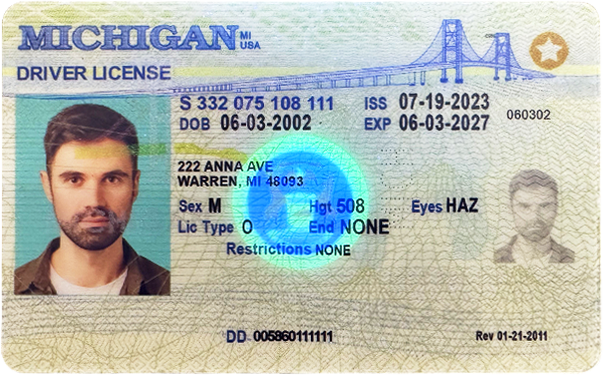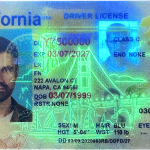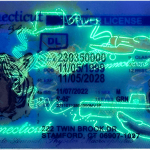RV parks are popular destinations for those who love the freedom and adventure of traveling in a recreational vehicle. When guests arrive at an RV park, one of the common procedures is the verification of their driver’s licenses. This process serves multiple important purposes, such as ensuring the safety and security of the park and its residents, as well as maintaining proper records of the guests.
Initial Registration Process
When a guest first checks – in at an RV park, they are typically required to present their driver’s license. The front – desk staff will start by visually inspecting the license. They check for basic elements such as the expiration date. An expired license may indicate that the guest has not been keeping up with their identification requirements, which could potentially be a red flag. The staff will also look at the photo on the license to ensure that it matches the person standing in front of them. This helps to prevent identity fraud and ensures that the person checking in is indeed the license holder.

Another aspect of the visual inspection is to check for any signs of tampering or alteration on the license. This could include changes to the name, address, or other printed information on the license. If any such irregularities are found, the staff will likely ask the guest for additional forms of identification or further clarification.
License Number Verification
In addition to the visual inspection, many RV parks also use electronic means to verify the guest’s driver’s license number. Some parks may have access to databases that can quickly check the validity of the license number. These databases are often maintained by state or national transportation authorities. By entering the license number into the system, the staff can retrieve information such as the license status (active, suspended, or revoked), the issuing state, and sometimes even additional details about the license holder’s driving record.
For example, if a guest’s license is found to be suspended, the RV park may have policies in place to either deny them entry or require additional security deposits or arrangements. This helps to protect the park from potential liabilities associated with guests who may have a history of irresponsible driving or legal issues related to their license.

Cross – Referencing with Reservations
The information on the driver’s license is also cross – referenced with the guest’s reservation details. The name on the license should match the name on the reservation. This is important for ensuring that the person checking in is the same person who made the reservation. In some cases, if there is a mismatch, the staff may need to contact the reservation source (such as an online booking platform or the person who originally made the reservation) to clarify the situation.
The address on the driver’s license may also be compared to the address provided during the reservation process. While this may not be a strict requirement in all cases, it can be an additional layer of verification. For instance, if the reservation was made using a business address and the driver’s license shows a completely different residential address, it could prompt further questions from the park staff.
Security and Liability Considerations
Checking guest’s driver’s licenses is a crucial part of maintaining the security of an RV park. By having accurate information about the guests, parks can better handle any security incidents that may occur. In the event of a theft, accident, or other security – related issue, having the correct driver’s license information can help law enforcement authorities in their investigations.

From a liability perspective, RV parks also need to ensure that the guests they allow in are responsible individuals. If a guest with a revoked license causes an accident within the park, the park could potentially be held liable if it is found that they did not properly check the license. Therefore, thorough license checks are in the best interest of both the park and its guests.
Common Problems and Solutions
- Problem: Guest forgets to bring their driver’s license
Solution: The RV park may allow the guest to provide a digital copy of their license if it is stored on their phone or other device. However, the park should ensure that the digital copy is clear and contains all the necessary information. If a digital copy is not available, the park may require the guest to retrieve their license within a reasonable time frame, such as the next business day, or provide alternative forms of identification such as a passport or state – issued ID card.
- Problem: The license is damaged or difficult to read
Solution: If the license is damaged but the key information (name, photo, license number, and expiration date) is still legible, the park may accept it with caution. They can cross – reference the information with other sources, such as the reservation details or a phone call to the guest’s home address or contact number provided during the reservation process. If the license is too damaged to read, the guest should be asked to obtain a replacement license from the relevant DMV (Department of Motor Vehicles) before being allowed to check in.
- Problem: The license number does not match the database records
Solution: First, the park staff should double – check the accuracy of the license number entered into the database. There could be a simple typing error. If the number is correct and still does not match, the park should contact the guest to ask for an explanation. The guest may have a valid reason, such as a recent name change or a delay in the database update. If the situation cannot be resolved, the park may need to deny entry or require additional guarantees, such as a larger security deposit.
- Problem: The photo on the license does not resemble the guest
Solution: The park staff should politely ask the guest for an explanation. The guest may have had a significant change in appearance since the license photo was taken, such as a new hairstyle or significant weight loss or gain. In such cases, the guest can provide additional forms of identification, such as a credit card with a signature or a utility bill with their name and address, to support their identity. If the guest cannot provide satisfactory explanations or additional ID, the park may need to further investigate or deny entry.
- Problem: The guest has a foreign driver’s license
Solution: RV parks should have a policy in place for handling foreign driver’s licenses. In many cases, a valid foreign driver’s license may be accepted, especially if the guest also has a valid passport. However, the park may want to verify the license’s authenticity by contacting the relevant foreign transportation authority or using an international license – verification service. The park may also need to provide the guest with additional information about local driving laws and regulations if the guest plans to drive within the park or in the surrounding area.
Fake ID Pricing
unit price: $109
| Order Quantity | Price Per Card |
|---|---|
| 2-3 | $89 |
| 4-9 | $69 |
| 10+ | $66 |



